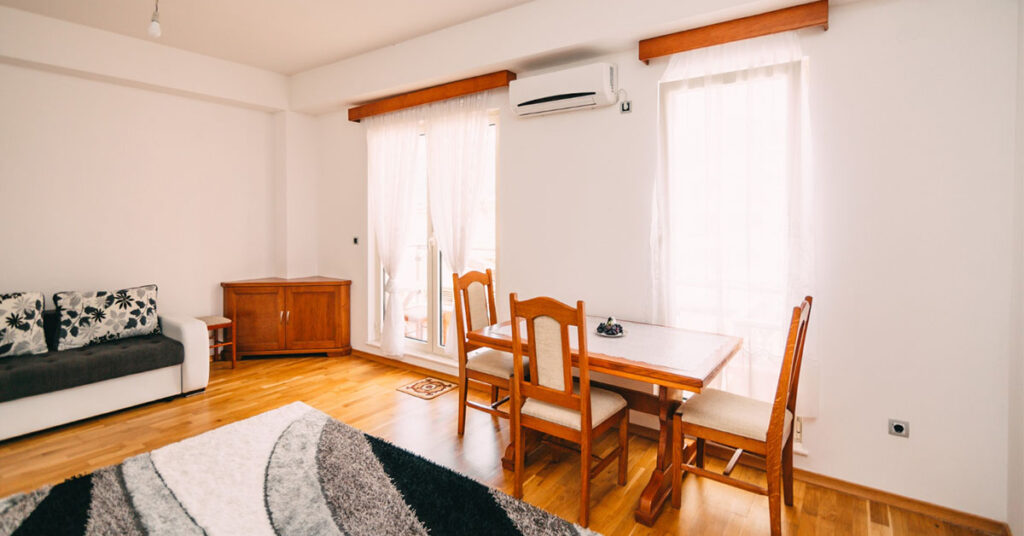Homeowners in Dallas, Texas, seek refuge from the scorching summer heat by turning on their air conditioners. However, many wonder, beyond just providing relief from the heat, does air conditioning lower humidity, too? This article will explore the relationship between air conditioning and humidity levels, showing how this dynamic impacts comfort and indoor air quality. Let’s get started.
What is Humidity
We should first understand the concept of humidity before examining air conditioning. Humidity refers to the amount of moisture present in the air. In regions like Dallas, where summer temperatures soar, humidity levels can also soar, causing sticky, uncomfortable conditions indoors.
The Role of Air Conditioning
Air conditioning systems play a vital role in regulating temperature and humidity within indoor spaces. AC units cool the air but act as dehumidifiers by extracting moisture from the air as it passes through them. So, does air conditioning lower humidity? Let’s take a look.
Does Air Conditioning Lower Humidity?
Yes, air conditioning does lower humidity. When warm indoor air is drawn into the air conditioning unit, it passes over coils filled with refrigerant. As the air cools, moisture condenses on these coils and is drained away. This process effectively removes excess humidity from the air, creating a more comfortable indoor environment.
Especially in Dallas, where high humidity levels, air conditioning relieves the heat and helps mitigate moisture-related problems. Therefore, a reliable air conditioning system is vital to maintain a comfortable and healthy home environment.
How Air Conditioning Lowers Humidity
Air conditioning systems employ a process known as “cooling and dehumidification” to lower humidity levels effectively. The air conditioning unit encounters a series of coils filled with a chilled refrigerant when warm, moisture-laden indoor air is drawn into it. As the air passes over these coils, it cools rapidly, causing the moisture it carries to condense into droplets.
These droplets then collect on the coils or are channeled away through a drainage system, effectively removing excess humidity. Especially in humid regions like Dallas, Texas, air conditioning maintains lower humidity levels by continuously cycling and cooling the indoor air.
Benefits of Lower Humidity
In addition to providing greater comfort, lowering humidity levels in your Dallas home contributes to a healthier and more enjoyable living environment.
Reduced Risk of Mold and Mildew
In high humidity, mold and mildew can grow on surfaces like walls, ceilings, and furniture. Lowering the humidity level can inhibit the proliferation of these microorganisms, which can lead to structural damage and health issues.
Improved Indoor Air Quality
Excessive moisture in the air can exacerbate indoor air quality issues by promoting the accumulation of dust mites, bacteria, and other allergens. Lower humidity levels will mitigate these problems and create a healthier indoor environment. Cleaner air is essential for people with respiratory conditions like asthma or allergies, as it can help alleviate symptoms.
Enhanced Comfort
High humidity can make indoor spaces feel sticky, clammy, and uncomfortable, even with relatively cool temperatures. You can enjoy greater comfort and relaxation in your Dallas home during the hot and humid summer with air conditioning systems that reduce humidity.
Preservation of Property
Moisture in the air can damage your home’s structure and contents, including furniture, electronics, and valuable items. Lower humidity helps protect these items from moisture-related damage, extending their lifespan and preserving their appearance and functionality.
Energy Savings
In addition to improving indoor comfort and air quality, lowering humidity levels can save energy. Air conditioning systems operate more efficiently in drier conditions, requiring less energy to cool and dehumidify the air. Maintaining optimal humidity levels will reduce energy consumption and utility bills while keeping your house comfy.
With lower humidity, Dallas homeowners can create a more comfortable, healthier, and sustainable living environment for themselves and their families.
How to Optimize Your Air Conditioning System
Maintaining and sizing your air conditioning system is crucial to lowering humidity levels and maximizing comfort in your Dallas home.
- Regular Maintenance: Schedule routine maintenance for your AC unit to keep it operating at peak efficiency. It includes cleaning or replacing air filters, inspecting and cleaning evaporator and condenser coils, checking refrigerant levels, and ensuring proper condensate drainage.
- Proper Sizing: Work with a professional HVAC technician to ensure your home’s air conditioning system is appropriately sized. An undersized unit may struggle to adequately cool and dehumidify your space, leading to discomfort and potential issues with excess moisture. Conversely, an oversized unit may cycle on and off frequently, failing to remove humidity from the air effectively.
- Sealing and Insulation: Ensure your home is adequately sealed and insulated to prevent the infiltration of warm, humid air from outdoors. Inspect windows, doors, and other potential sources of air leaks, and fill any gaps or cracks to maintain a tight building envelope.
- Smart Thermostat Usage: Utilize programmable or smart thermostats to optimize your air conditioning system’s operation. Set temperature and humidity levels according to your preferences and schedule temperature setbacks when the home is unoccupied to conserve energy while maintaining comfort.
- Consider Additional Dehumidification: In humid climates like Dallas, supplemental dehumidification solutions, such as standalone dehumidifiers or whole-home dehumidification systems, may benefit you. These devices can complement your air conditioning system by reducing indoor humidity levels, enhancing comfort, and protecting your home from moisture-related issues.
By using these optimization strategies, you’ll reduce humidity levels, increase air conditioning efficiency, and maintain a comfortable indoor climate.
Read More: Is Air Conditioning More Expensive Than Heating?
Conclusion
Air conditioning lowers humidity, relieving the oppressive heat and humidity of Dallas summers. You can create a healthier indoor environment for yourself and your family by understanding how air conditioning works. You can rest assured that when the Texas heat hits, your AC is cooling your home and keeping humidity low.

